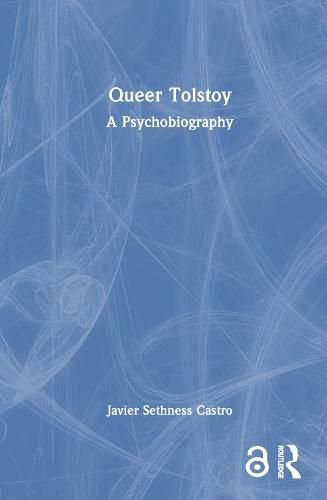Readings Newsletter
Become a Readings Member to make your shopping experience even easier.
Sign in or sign up for free!
You’re not far away from qualifying for FREE standard shipping within Australia
You’ve qualified for FREE standard shipping within Australia
The cart is loading…






Queer Tolstoy is a multidimensional work combining psychoanalysis, political history, LGBTQ+ studies, sexology, ethics, and theology to explore the life and art of Count Lev Nikolaevich Tolstoy.
Using a psychobiographical framework, Sethness Castro uncovers profoundly queer dimensions in Tolstoy’s life experiences and art. Deftly contributing to the progressive and radical analysis of gender and sexuality, this book examines how Tolstoy’s erotic dissidence informed his anarchist politics, anti-militarist ideals, and voluminous literary production. Sethness Castro analyses the influence of Buddha, Socrates, Jesus, Cervantes, Rousseau, Kant, Schopenhauer, Pierre-Joseph Proudhon, and Nikolai Chernyshevsky on Tolstoy’s writings. Furthermore, he details the artist’s emblematic linking of LGBTQ+ desire with moral and erotic self-determination and resistance to despotism.
This book is vital reading for those interested in the intersection of literature, psychoanalysis, Queer Studies, and Russian history.
$9.00 standard shipping within Australia
FREE standard shipping within Australia for orders over $100.00
Express & International shipping calculated at checkout
Queer Tolstoy is a multidimensional work combining psychoanalysis, political history, LGBTQ+ studies, sexology, ethics, and theology to explore the life and art of Count Lev Nikolaevich Tolstoy.
Using a psychobiographical framework, Sethness Castro uncovers profoundly queer dimensions in Tolstoy’s life experiences and art. Deftly contributing to the progressive and radical analysis of gender and sexuality, this book examines how Tolstoy’s erotic dissidence informed his anarchist politics, anti-militarist ideals, and voluminous literary production. Sethness Castro analyses the influence of Buddha, Socrates, Jesus, Cervantes, Rousseau, Kant, Schopenhauer, Pierre-Joseph Proudhon, and Nikolai Chernyshevsky on Tolstoy’s writings. Furthermore, he details the artist’s emblematic linking of LGBTQ+ desire with moral and erotic self-determination and resistance to despotism.
This book is vital reading for those interested in the intersection of literature, psychoanalysis, Queer Studies, and Russian history.